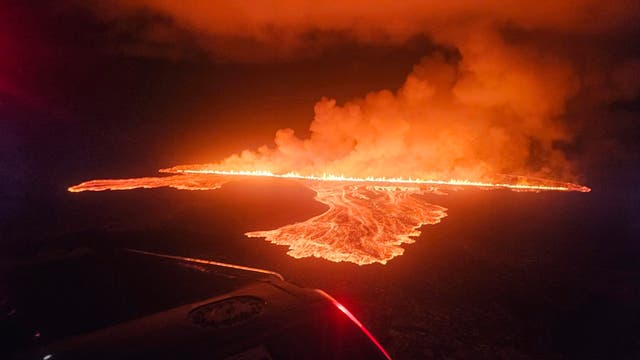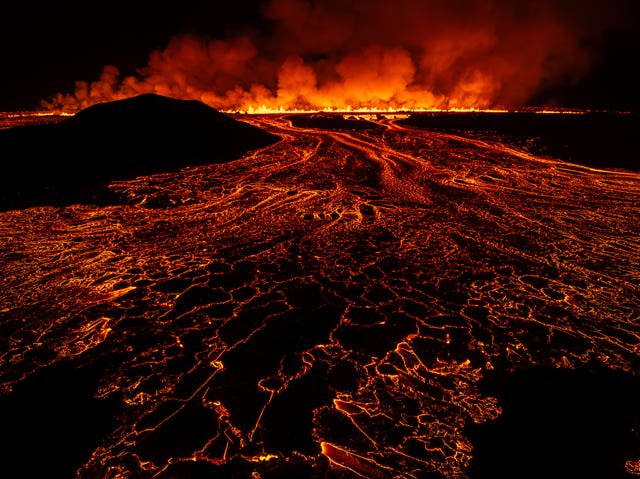Icelandic volcano erupts for the seventh time in a year
The eruption poses no threat to aviation, but authorities have issued a gas warning across parts of the Reykjanes Peninsula.

A volcano on the Reykjanes Peninsula in south-western Iceland has spewed lava from a fissure in its seventh eruption since December.
The eruption started with little warning at 11.14pm local time on Wednesday and created a fissure around 1.8 miles long but was estimated to be considerably smaller than the previous eruption in August, Iceland’s meteorological office that monitors seismic activity said.
“In the big picture, this is a bit smaller than the last eruption and the eruption that occurred in May,” said Magnus Tumi Gudmundsson, a professor of geophysics who flew over the eruption with the Civil Protection Agency to monitor the eruption.

The repeated volcanic eruptions close to the town of 3,800 people about 30 miles south west of the capital, Reykjavik, have damaged infrastructure and property and forced many residents to relocate to guarantee their safety.
“Grindavik is not in danger as it looks, and it is unlikely that this crack will get any longer, although nothing can be ruled out,” Prof Magnus Tumi said.

Iceland, which sits above a volcanic hot spot in the North Atlantic, averages one eruption every four to five years. The most disruptive in recent times was the 2010 eruption of the Eyjafjallajokull volcano, which spewed clouds of ash into the atmosphere and disrupted trans-Atlantic air travel for months.





